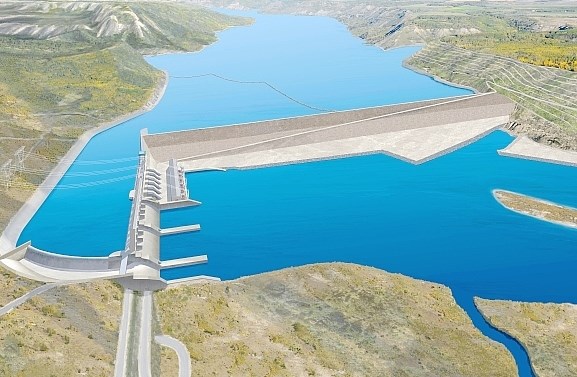A number of key First Nations leaders have adroitly realized the best way to kill the Site C dam project may be to hitch their potential support for building LNG pipelines to the dam never being built.
Getting First Nations’ support for any major economic development that involves land use or the extraction of natural resources has been the reality in recent years and will only become more critical in the years ahead.
The strong opposition of First Nations is a major reason why Enbridge’s Northern Gateway pipeline will likely never be built. Premier Christy Clark’s government faces a number of challenges towards getting an LNG industry up and running in this province, not the least of which is ensuring First Nations don’t decide to block any pipelines or projects.
So when three key B.C. First Nations leaders travelled to Ottawa last week to send a message to the federal government that they strongly oppose the Site C dam -- but might be open to supporting other forms of energy, including LNG pipelines — it’s important that everyone sit up and take notice.
Chief Roland Wilson of the West Moberly First Nation, which would be most directly affected by the massive flooding that would occur if Site C dam is built, made it clear he won’t support any LNG pipelines if Site C proceeds.
His band is one the few to have signed a treaty with the provincial government, having done so back in 1899. As such, it’s not entirely clear how the recent Supreme Court of Canada landmark decision conferring aboriginal title will affect treaty bands’ opposition to Site C.
Nevertheless, Wilson’s support for LNG pipelines is likely needed, and so is that of other First Nations. This is not going to be an easy thing to secure, given that not all First Nations share the same views on resource development.
Public opposition to LNG does not appear to be anywhere near the level attached to oil pipelines like Northern Gateway or Kinder Morgan’s proposed twinned pipeline project. A “spill” from an LNG pipeline simply dissipates into the atmosphere, instead of fouling creek beds or coast lines.
The main concerns over natural gas extraction is the practice of fracking, which involves injecting huge amounts of water laced with chemicals deep into the ground in order to loosen gas deposits. But so far, at least, there is not much evidence of a groundswell of opposition to this practice.
But the opposition, from both the general public and First Nations, towards the Site C dam project will likely increase substantially in the years ahead. Chief Wilson argues his territory is already abuzz with all kinds of industrial activity — fracking, gas wells, windfarms — and to add both LNG pipelines and a massive hydroelectric dam is simply too much, and that’s an argument that will likely gain more traction with the public.
So don’t be entirely surprised if the B.C. government loses enthusiasm for building Site C if it realizes doing so may jeopardize a more prized part of its economic and energy strategy — getting an LNG industry firmly established in this province.
***
I see the Ministry of Children and Family Development is once again displaying its trademark tone-deafness, as it has apparently decided to deduct post-secondary bursaries from any financial aid foster youth receive from the province.
Mary-Ellen Turpel-Lafond, the B.C. Representative for Children and Youth, blew the whistle on the scheme last week, calling it “petty” and “embarrassing.”
Turpel-Lafond has demanded the problem be “fixed” immediately.
Given her track record of winning these kinds of battles, I can only assume it will be. But as of this column’s writing, it had not.
Get on it, MCFD.
Keith Baldrey is chief political reporter for Global BC.


.jpg;w=120;h=80;mode=crop)
